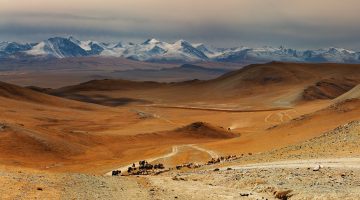MPBN interviews Birkel about Maine’s ‘Year Without a Summer’
Sean Birkel, the Maine state climatologist and University of Maine research assistant professor with the Climate Change Institute, spoke with the Maine Public Broadcasting Network for the report, “Maine may have ‘Year Without a Summer’ to thank for its statehood.” 1816 — also known as the Year Without a Summer — was a harsh summer […]
Read more
